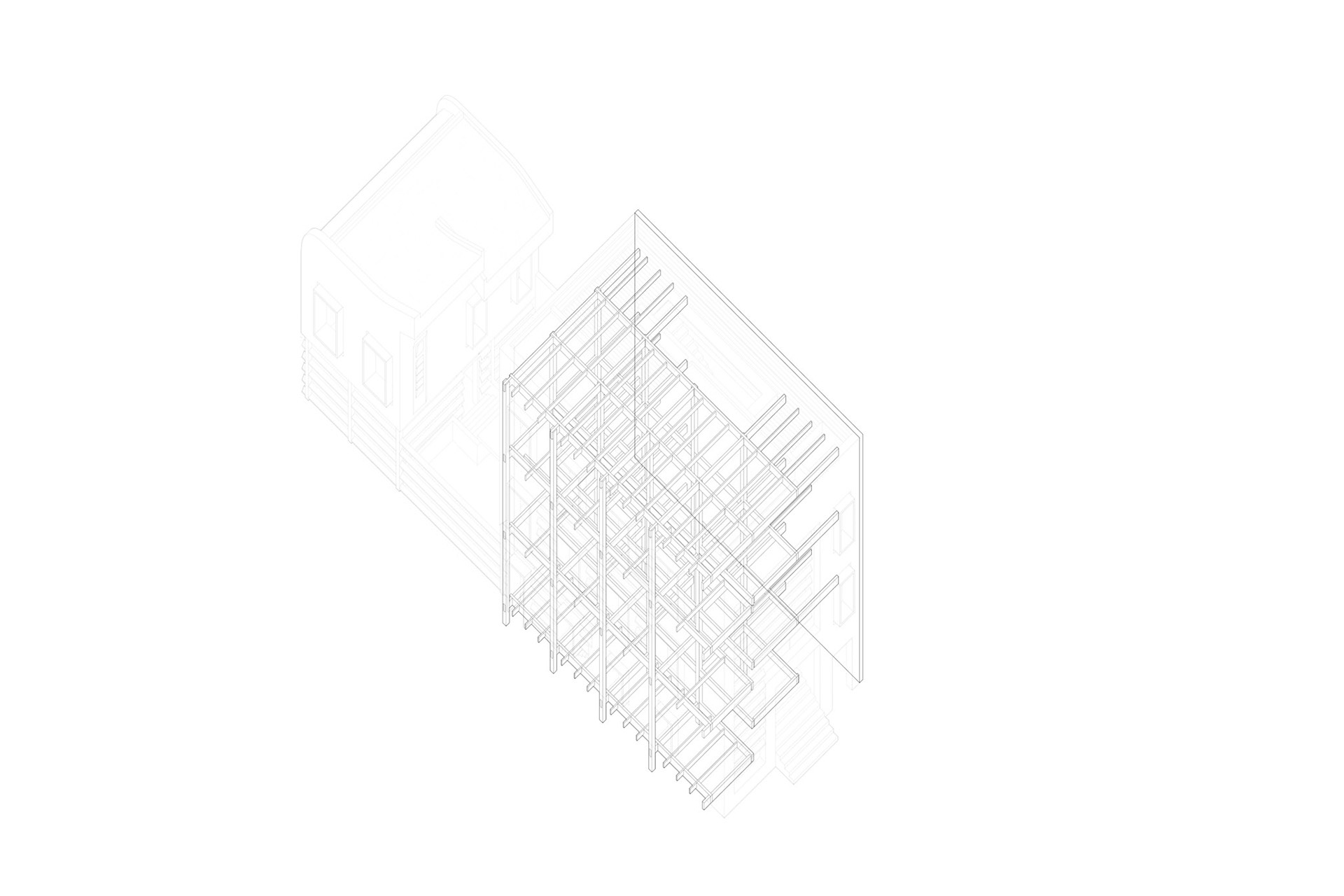A continuation of the experiments in bioactive skin cladding and ecomimicry of the Warbler Seasonal Studio— the Infill Housing project is situated on a corner of Chatham Square within Savannah, GA. The project incorporates elements of Savannah's vernacular architecture (shotgun houses, façade composition, etc) while integrating a new approach for the urban schema, modeled on ecology. The project houses a 2-Bed, 1-Bed, and Studio apartment as well as a publicly accessible basement level nature interpretation center - introducing additional program to the otherwise uniformly residential square.
The project emulates the properties of a tree snag in respect to its circulation, thermal insulation, and serving as a zone capable of being inhabited by fauna. It makes use of lo-fab construction techniques which can be used in providing job training to the local community, whose poverty and unemployment rate is on the rise, while stimulating new local businesses and industries to arise as a direct result. Local waste is converted to construction material through the conversion of local 'flyash'* into Ashcrete (a low emissions concrete alternative), and the conversion of waste produced by the removal of non-native vegetation**. The vegetative waste constitutes the bulk of the projects constructed mass; taking the form of bark-cladding, timber floors, and structural elements. This use of re-purposed local waste material and labor, in combination with a series of employed passive design strategies, is intended to drastically reduce construction and operation expenses where the savings are intended to be passed onto the inhabitants.
* A toxic coal energy production by-product which has been dumped into the Savannah River for decades (making it the third most polluted river in the USA).
** Waste generated by the proposal of a new ecosystem-services based urban hydrology plan which calls for the removal of non-natives and interconnection of all of Savannah's squares and sidewalk greenery
Category
Academic
Location
Savannah, GA
Köppen-Geiger Climate Classification
Cfa Humid subtropical
WWF Ecoregion
Middle Atlantic coastal forests
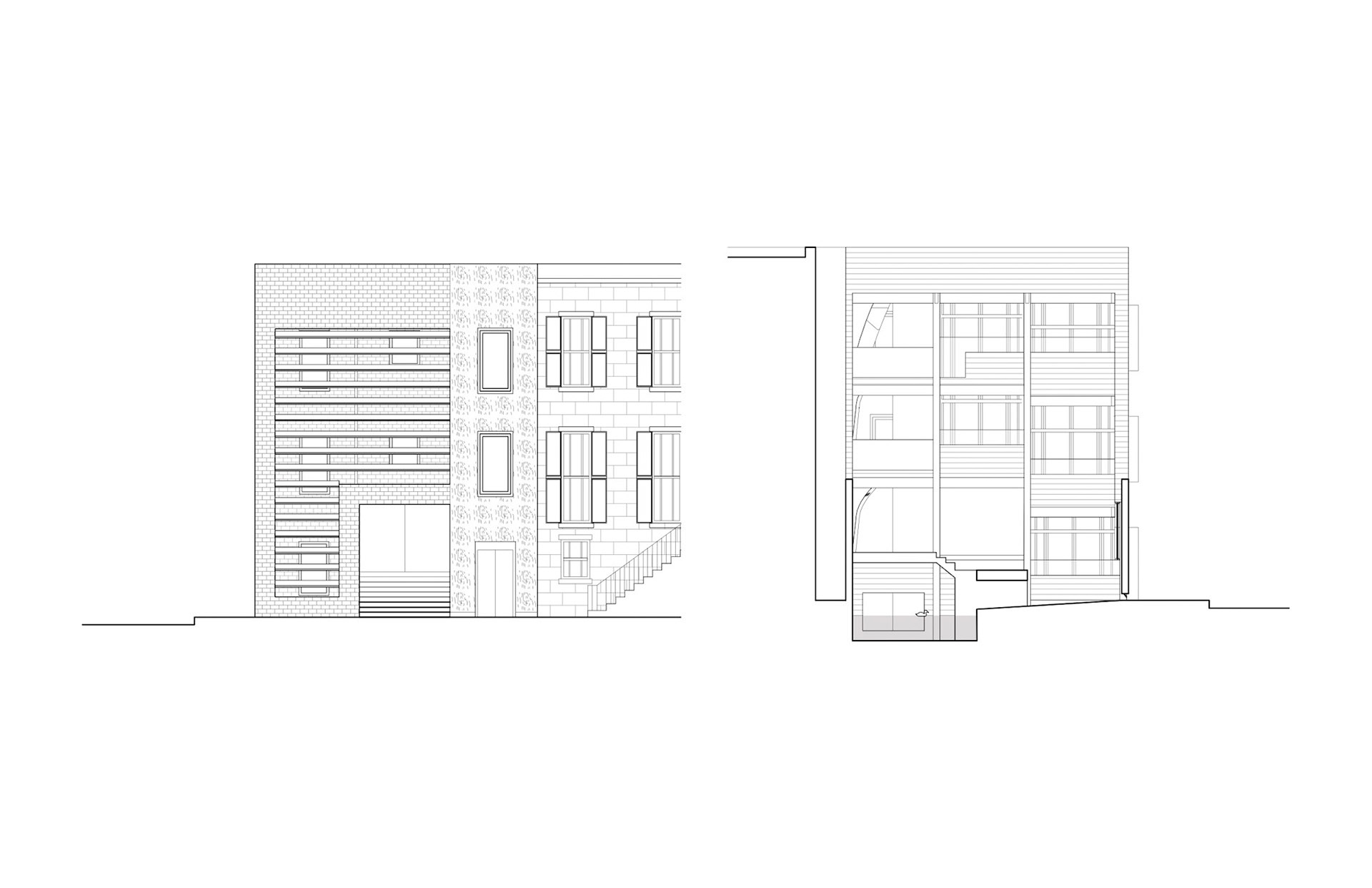
South&North Infill Housing Elevations

West Elevation

Cross-Section I (Infill Housing)

North&South Carriage House Elevations
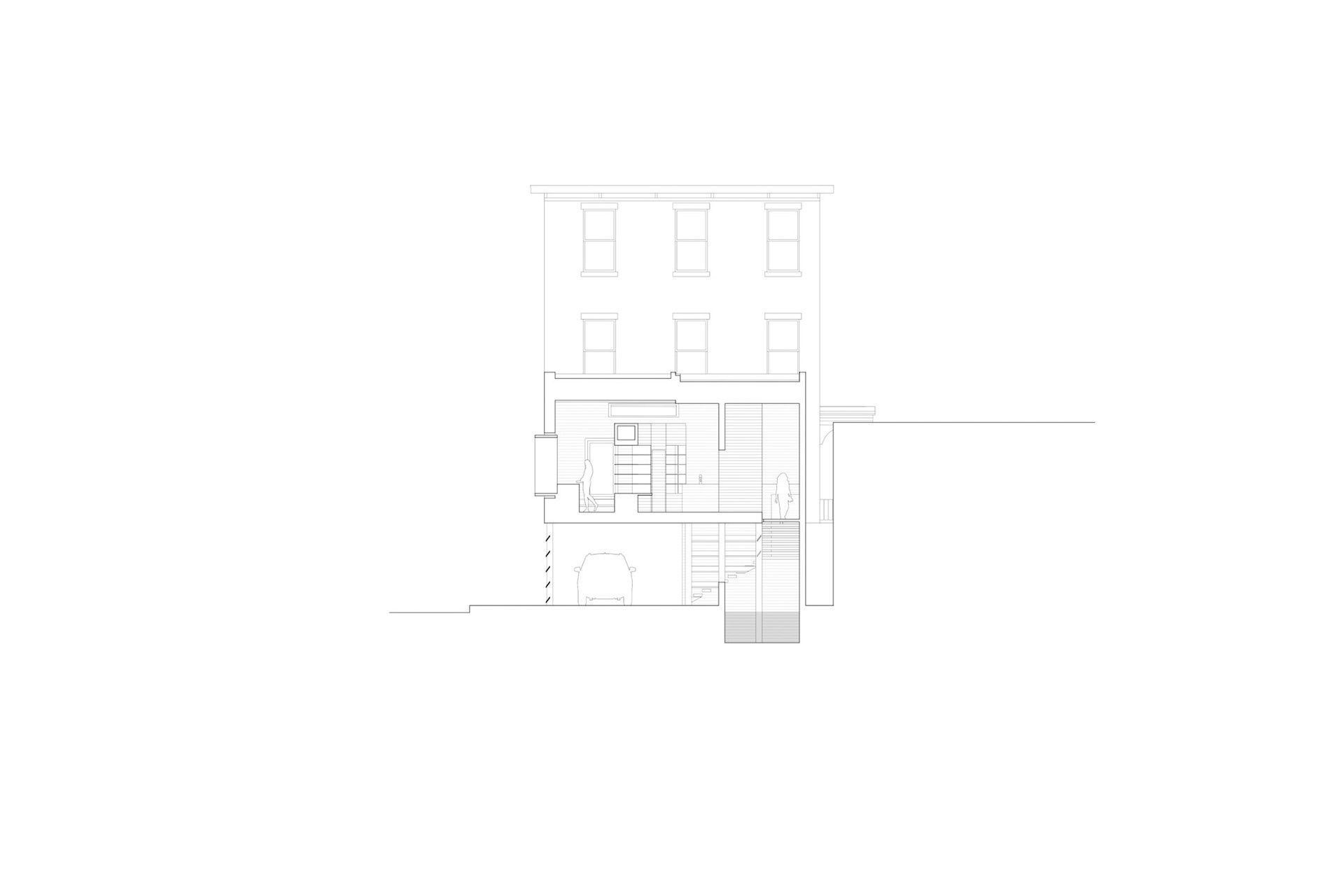
Cross-Section II (Carriage House)
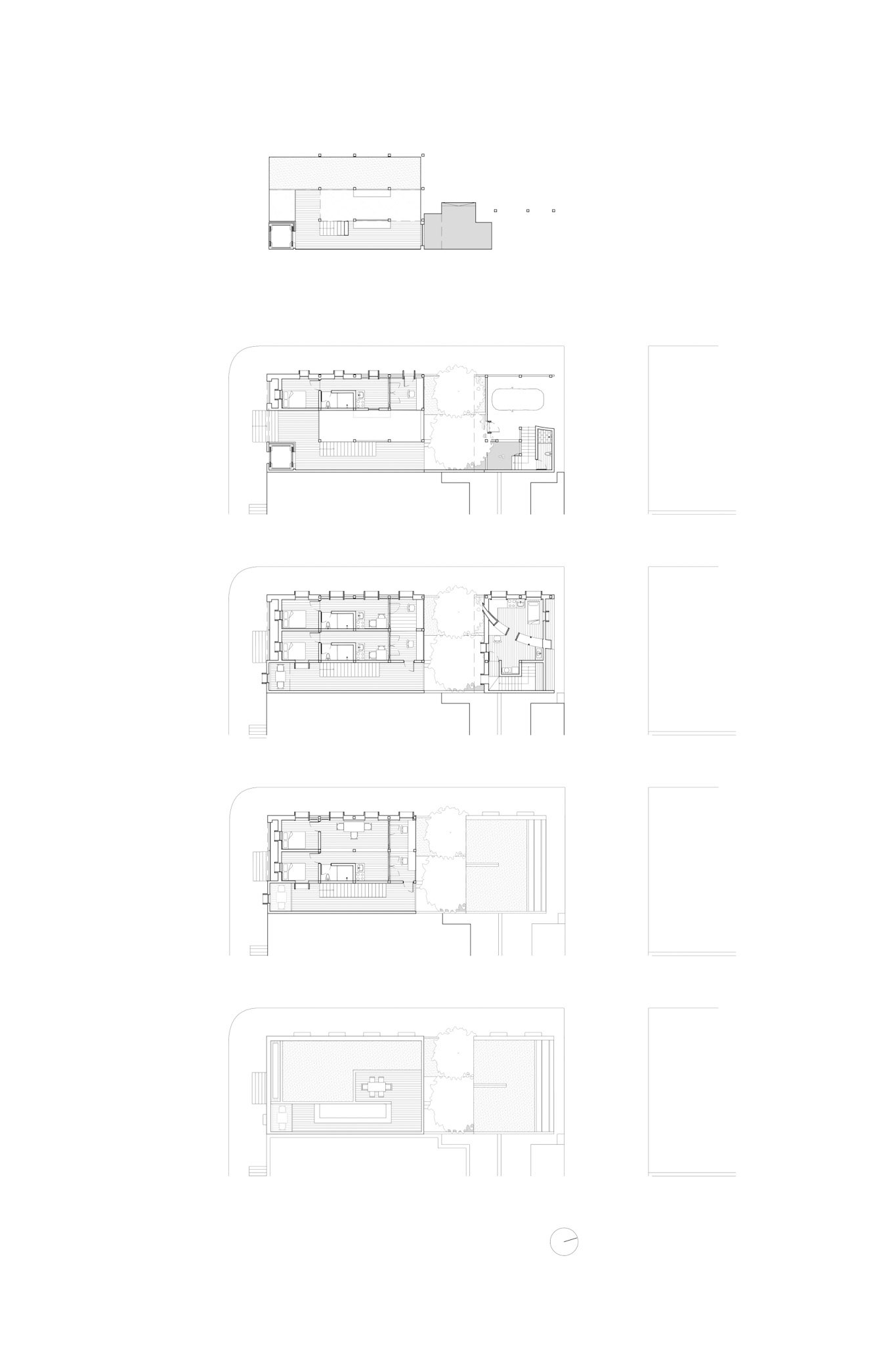
Floor Plans

Life Safety Floor Plans
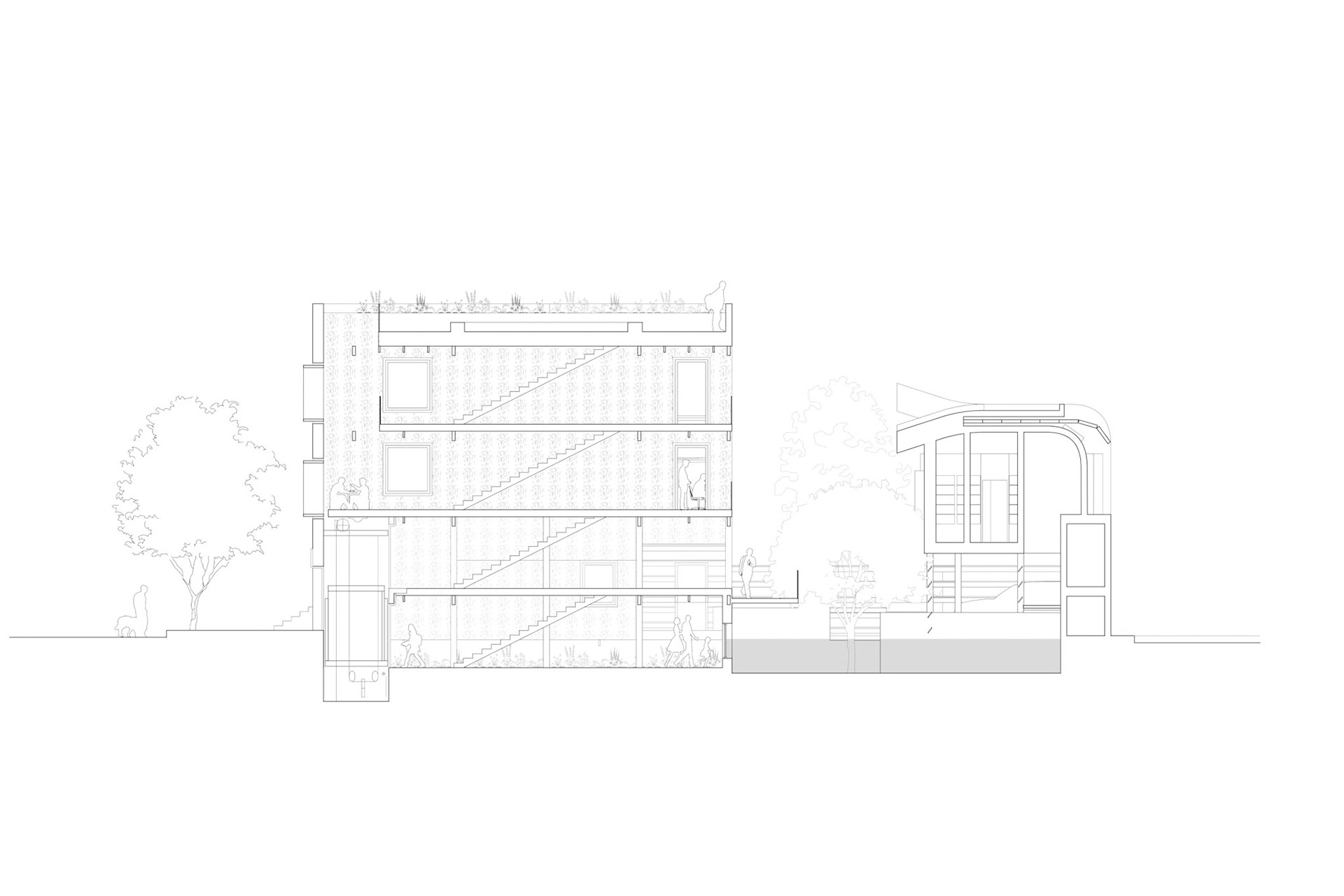
Longitudinal Section
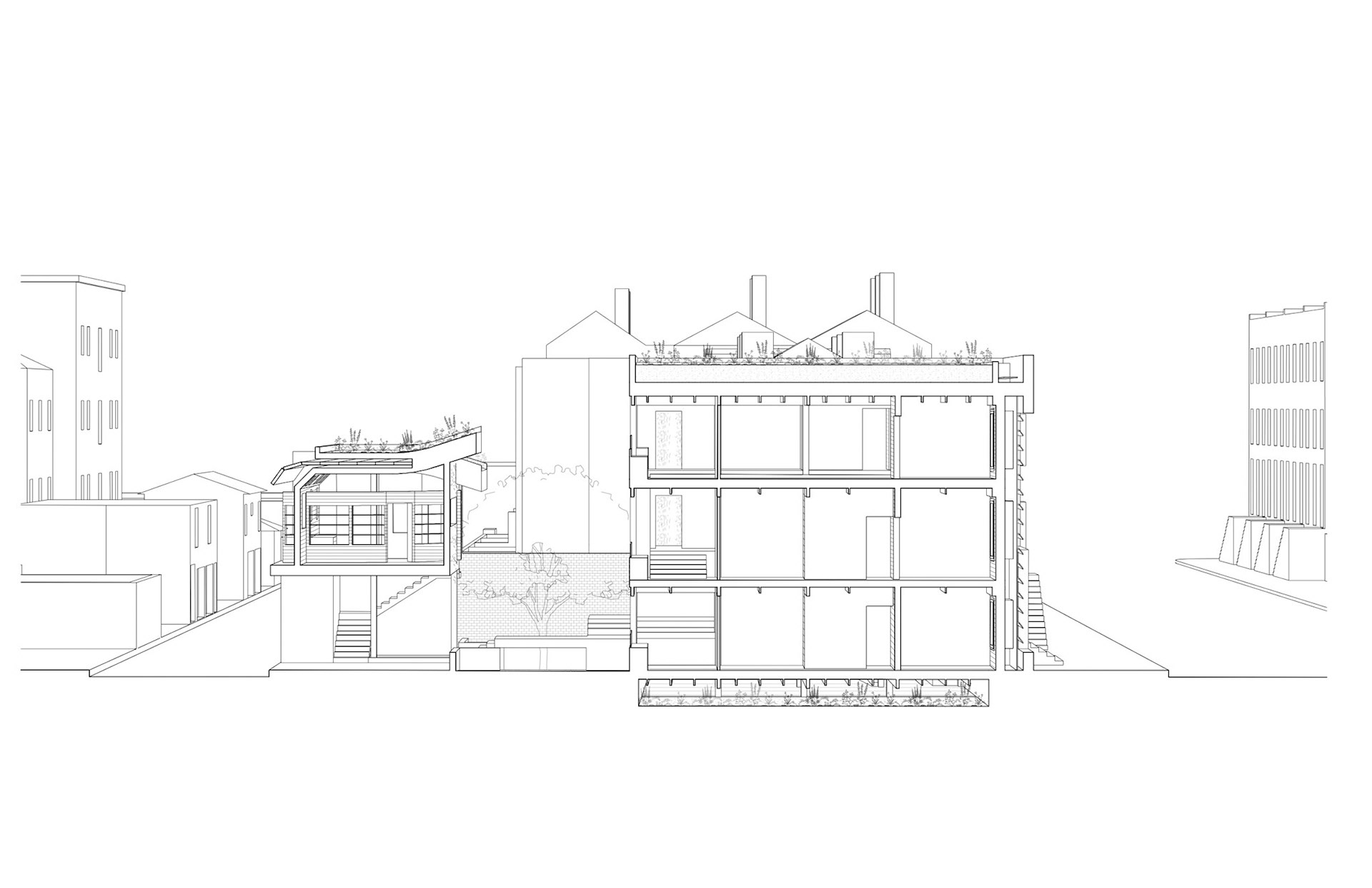
Longitudinal Section Perspective

Southern Wall Section Detail (Infill Housing)
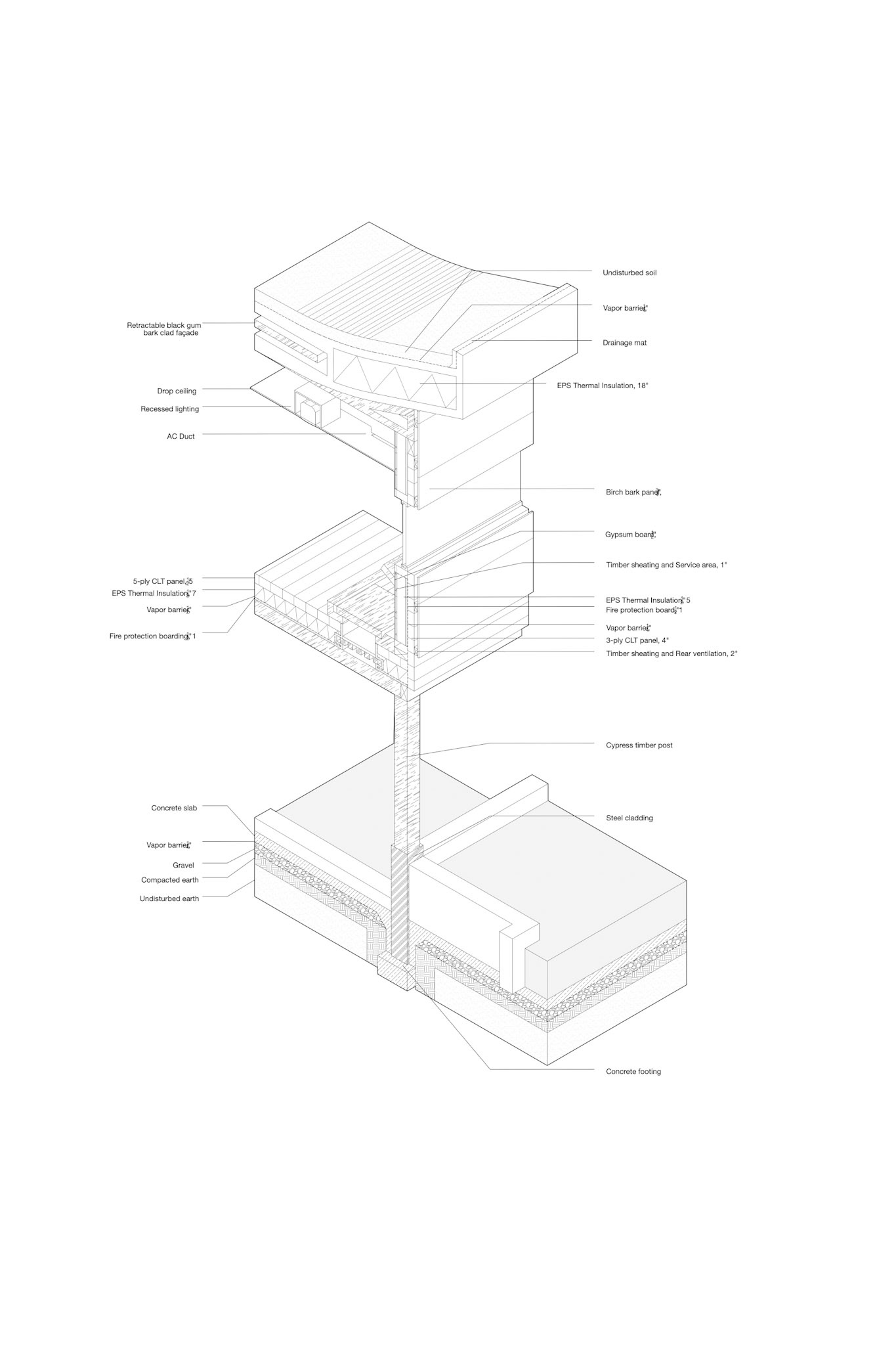
Southern Wall Isometric Wall Section Detail (Carriage House)
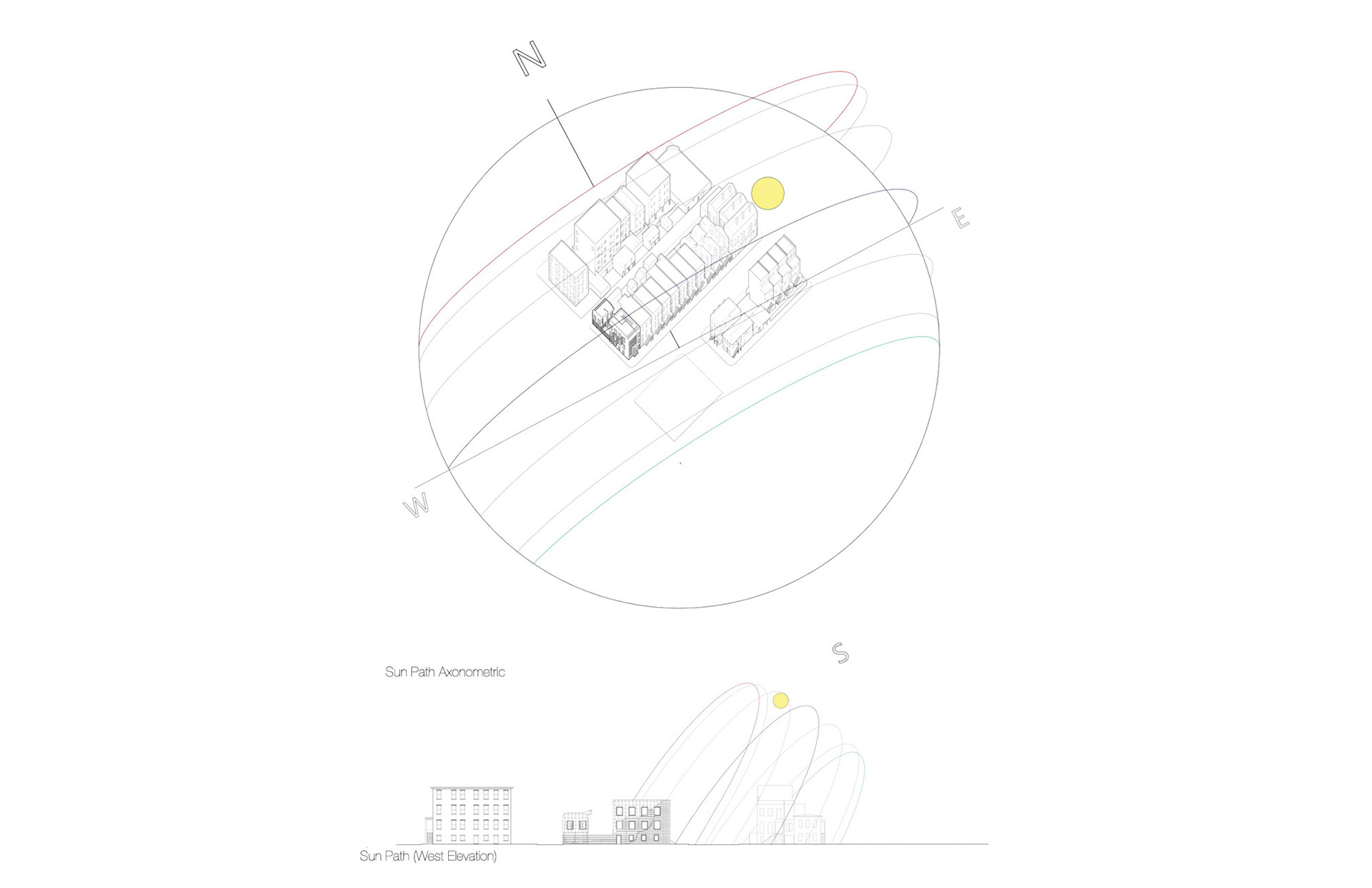
Sun Path Diagrams
